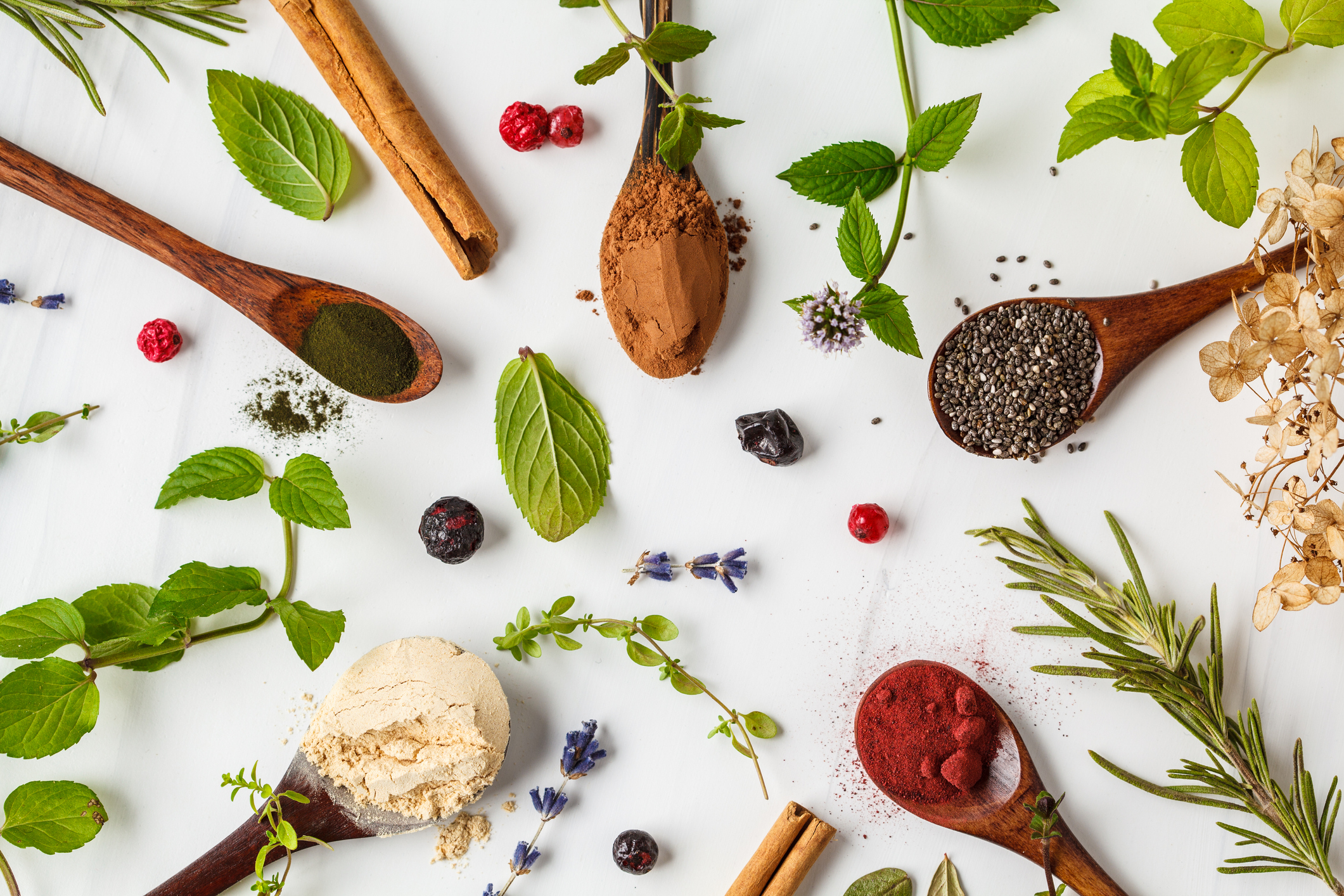Get Easy Health Digest™ in your inbox and don’t miss a thing when you subscribe today. Plus, get the free bonus report, Mother Nature’s Tips, Tricks and Remedies for Cholesterol, Blood Pressure & Blood Sugar as my way of saying welcome to the community!
Superfoods for blood sugar, blood pressure, inflammation and more

Superfoods are a convenient way to supersize your health. Most superfoods are super because they’re high in antioxidants. An easy way to know how much antioxidant value a food has is to check its ORAC score.
The ORAC score (Oxygen Radical Absorbance Capacity) is a method developed by scientists at the National Institute of Health and Aging (NIH) to measures the antioxidant capacity of different foods. At the top of the list, you’ll find spices, followed by fruits and vegetables.
But it’s not the only measurement of a superfood. Nutrient density is an important part of the equation as well. And many possess powerful compounds like anthocyanins, ellagitannins and polyphenols.
Now three brand new studies have taken a closer look at the science behind the health benefits of superfoods. And they’ve discovered health benefits that go far beyond what we previously knew…
Study #1 – Mango to lower chronic disease risk
Mangos are absolutely packed with vitamins, minerals, fiber and other unique micronutrients that have earned them the title of superfood.
That’s why researchers from San Diego State University decided to pit the results of snacking on the tropical fruit against the common cookie.
The team asked 27 overweight or obese participants to eat either 100 calories of mango or get the same 100 calories from cookies daily for 12 weeks.
The results?
People who ate mangos benefitted from lower fasting glucose levels. And to top it off, the inflammation in their body went down!
That’s a major deal because chronic inflammation may increase the risk of various kinds of health problems… including everything from heart disease and diabetes to Parkinson’s.
Study #2 – Honey puts out the fires of inflammation
Honey has been used since ancient times for its medicinal qualities. Yet, scientists are still uncovering the biochemistry behind the health benefits of this sweet treat.
Now, researchers at the University of Nebraska-Lincoln have discovered the secret behind its anti-inflammatory properties.
They found that honey actually contains tiny nano-scale particles with a membrane-enclosed structure similar to exosomes found in the body.
Experiments with these particles showed that they have the ability to reduce inflammation in mice with liver injury. And they may even stop the activation of a key enzyme complex that sets off the inflammation cascade.
Of course, that’s not the only benefit of honey.
Research has even found five more ways the superfood could help you live a longer, healthier life.
Study #3- Herb and spice things up to lower blood pressure
Researchers from Penn State University and Texas Tech University examined the effects of mixed herbs and spices added to an average American diet in adults at higher risk for cardiometabolic disease.
The study included 71 participants who ate diets with 6.6, 3.3 and 0.5 grams per day of herbs/spices for four weeks. The three study diets did not show any differences in cholesterol or blood sugar levels. However, when the diet with the most herbs and spices — the equivalent of about 1.5 teaspoons — was eaten, 24-hour blood pressure levels were improved compared to the diet with the lowest amounts of herbs and spices.
Now they haven’t revealed the combination of herbs and spices used in this study, but previous studies have put blood pressure-lowering clout behind these:
- Basil
- Garlic
- Parsley
- Celery seeds
- Thyme
- Cardamom
Study #4 – Ginger, cinnamon and turmeric offer cholesterol benefits
Ginger, cinnamon and turmeric have long been known as powerhouse spices thanks to their anti-inflammatory and antioxidant properties. However, researchers are still diving into what they can do to battle chronic diseases like diabetes and heart disease.
That’s why researchers at Clemson University set out to determine what affect these ‘superspices’ have on cholesterol levels in people with type 2 diabetes.
The team analyzed 28 separate studies of randomized controlled trials that included a total of almost 2100 patients who received either the spice supplements in capsule form for one to three months or a placebo.
And they found that ginger, cinnamon, turmeric, and the curcumin and curcuminoids found in turmeric led to lower cholesterol levels and an improved lipid profile (good versus bad cholesterol) for people with type 2 diabetes.
You may be surprised at the everyday foods you can use to supersize your health. Start adding these superfoods to your daily diet to take your health to the next level. And be sure to check out seven more superfoods for super women.
Editor’s note: Did you know that when you take your body from acid to alkaline you can boost your energy, lose weight, soothe digestion, avoid illness and achieve wellness? Click here to discover The Alkaline Secret to Ultimate Vitality and revive your life today!
Sources:
Inflammation — NIH
New research examines the science behind superfoods — EurekAlert!












